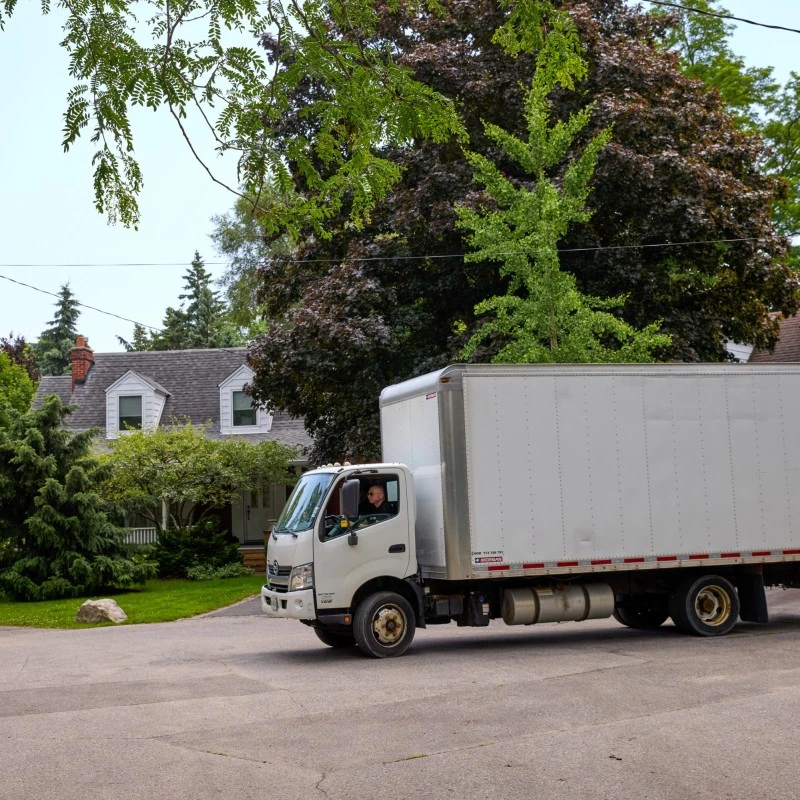Navigating Canada’s Healthcare System


On top of finding a house and employment, there's a lot to learn when immigrating to Canada. Different laws and customs add to the complexity, but it's especially important to know how to navigate Canada's healthcare system in case of an emergency.
Accessing health care is different in every country. The following article outlines everything you need to know about Canadian health care including the Medicare program, how to find a doctor, employee medical benefits, and rural access to services.
What is Canada's healthcare system like?

Canada has a universal healthcare system called Medicare.
Medicare is publicly funded and provides coverage for essential medical services to all Canadian citizens and permanent residents.
Under Medicare, Canadians can access necessary hospital care, physician services, and some primary care, without having to pay out-of-pocket.
Some health services are privatised, so there are still high out-of-pocket costs, such as for dental and optometry. Additional specialised services such as physiotherapy are paid out-of-pocket as well. Some provinces and territories offer free insurance plans that cover a portion of fees for these services.
In 1984, the Canadian government passed a law called the Canada Health Act. The new law ensures that healthcare is available to everyone, no matter which province/territory they live in and no matter their income levels. The law states that healthcare services must be made portable (usable across provinces), accessible, universal, comprehensive (covering all essential services), and publicly administered. The law also made it illegal for doctors or hospitals to charge extra fees or bills for services that are covered by government health insurance.
What is Medicare?
Medicare refers to Canada's publicly-funded healthcare program. Under Medicare, there are 13 provincial and territorial healthcare insurance plans. Roles and responsibilities for services are shared between provincial/territorial governments and the federal government. The governments are responsible for managing, organising and delivering health care services for residents.
Medicare covers core medical services, however, coverage for prescription drugs, dental care and other select services varies by province or territory.
How much does it cost to seek healthcare in Canada?
Healthcare spending in Canada accounts for roughly 12.2% of Canada's GDP. According to a recent study by the Fraser Institute, a typical family of four earning around $156,000 per year can end up spending roughly $15,850 in taxes just for public health care. These funds primarily come from general taxation.
Some services that are not covered by Medicare:
-
Dental care - A standard dental checkup can cost between $150 - $300.
-
Optometry - An eye checkup can cost anywhere from $50 - $250 depending on the type of exam.
-
Prescription medication - Costs vary depending on the type of medication.
-
Specialised appointments - Appointments for services such as physiotherapy, massage therapy, counselling, podiatry, chiropractor, etc can cost anywhere from $60-$200 per visit.
-
Home care - Billing rates can vary depending on the location. The typical hourly rate for home support, personal care, and companionship services ranges from $20-$30. Professional services such as nursing and therapy have higher rates ranging from $50-$60 per visit.
-
Long-term care - 24/7 in-home care in Canada ranges from $10,000 to $20,000 per month, depending on the level of care required and the specific services provided.
-
Nursing homes - The cost to stay in a nursing home can range from $180-$400 a day or $5,400-$12,000 a month. A private room in a nursing home can cost up to $490 a day or $14,790 a month.
What are healthcare benefits for employees in Canada?
Many employers provide partial or comprehensive benefits packages for their employees. These packages can include health care benefits such as:
-
Disability benefits
-
Dental care
-
Compassionate care leave
-
Healthcare insurance
-
Maternity and parental leave
-
Prescription medicines
-
Vision Care
-
Critical illness leave
-
Medical leave
-
Mental health services
-
Benefits for family members
How do I sign up for Medicare in Canada?
The first thing you need to do is register for a health card from your province or territory.
The card proves your registration in the healthcare system. You must present your health card when visiting health care providers.
You may have to wait up to 3 months before your health coverage begins, so it's good to have private health insurance during the waiting period.
How does the emergency and hospital system work in Canada?

The Emergency Department (ED) and Urgent Care Centre do not work on a first-come, first-serve basis. Patients with critical conditions will be seen first, regardless of when they arrive. Their condition is assessed using the Canadian Triage and Acuity Scale. The most severely ill or injured patients get immediate attention. Not all emergency rooms are the same, some hospitals have trauma centres staffed by specialists trained to handle severe injuries.
ER wait times can vary drastically, depending on the volume of staff available.
All publicly-funded Canadian hospitals are responsible for delivering hospital care services. Canadian residents without a valid health insurance plan and non-residents are responsible for all ER and hospital fees.
In the case of a medical emergency, dial 911 and an ambulance will come with first responders to provide emergency assistance.
Do I need private health insurance in Canada?
All Canadian citizens and permanent residents are covered under Medicare.

However, the Medicare system doesn't cover everything. Many people opt for private health insurance to cover costs for things like:
-
Prescription medications
-
Dental care
-
Physiotherapy
-
Ambulance services
-
Prescription eyeglasses
-
Elective surgeries
-
Access to private hospital facilities
Medicare is not available to those on a visitor, tourist or work visa.
Private health insurance is recommended to all visitors to Canada, no matter the length of your stay. Canada's 5 biggest private health insurance providers are Blue Cross, Manulife, Sun Life, Canada Life and Costco.
What is medical care like outside of major cities or towns?

Medical care is a little different in rural locations, with access to medical services often being limited. However, there are still ways to access health care in small towns:
-
Many small towns and villages have a doctor's office or two. Sometimes nurse practitioners visit small towns on scheduled times throughout the week.
-
Some small towns have their own hospitals, and these hospitals serve the surrounding communities as well.
-
Home care providers are common in small communities.
-
Specialists such as physiotherapists, massage therapists, etc often have local offices or run their practice in a home studio.
-
Prescription delivery or pickup services often exist in small communities.
Check your municipality's website or business listing to find out what services are available in your area.
Keep in mind that ambulance wait times can vary depending on the location, with some rural residents waiting up to 1 hour after an emergency call. This can be especially challenging for seniors who are more prone to accidents and medical emergencies.
READ: Pros and Cons of Living in Rural Canada
What are some of the challenges of the Canadian healthcare system?
Finding a family doctor in Canada: the ultimate health care challenge
These days, it's almost impossible to find a family doctor in Canada. Many physicians are nearing retirement age or have recently retired. Not all family doctors are actually working in family practice, and patient care is becoming increasingly complex. Admin tasks are overwhelming, and it's hard for doctors and staff to keep up.
Primary care in Canada has doctors running their own practices. This method hasn't changed much at all since Medicare was introduced in the 1960s. Furthermore, fewer Canadians are studying medicine overall. Over 50 years later, there is a widespread consensus that the primary healthcare model needs to evolve to meet present-day challenges.
Family doctors are advocating for more team-based care where medical decisions can be shared with professionals such as nurse practitioners, occupational therapists, pharmacists, etc. Doctors are also pushing for better physician mobility and virtual care so that patients can access a doctor when and where they need it.
In 2023 Canada passed a new law allowing pharmacists to prescribe medication for certain non-serious health ailments.
This law takes some of the pressure off doctors' offices and emergency rooms when people are seeking remedies for non-threatening medical issues.
Healthcare worker burnout
Healthcare workers in Canadian hospitals are experiencing widespread burnout due to attrition.
Registered care attendants are often asked to do tasks that are usually assigned to nurses, while the nurses struggle to keep up with an overload of patient care duties due to doctor shortages. It's a vicious cycle of overwork for everyone.
Rural healthcare challenges
Another issue is rural healthcare access. Funding for health care in Canada is based on geographical locations and demographics. Cities and larger towns receive the most funding, leaving rural communities with fewer resources.
Limited funding in rural areas means that small-town residents have to travel to cities to meet specific healthcare needs, as rural healthcare providers often lack the capacity to deal with complex medical issues.
The future of Canadian health care

On February 9, 2024 Prime Minister Pierre Trudeau and Ontario Premier Doug Ford signed a deal allotting 3.1 billion dollars to go towards health care improvements.
As part of the deal, new primary healthcare teams will be created. The teams include family doctors, nurse practitioners, nurses, pharmacists and social workers. More medical educational programs will become available and digital infrastructure for medical data and reporting will be upgraded.
Deals like this one are a step in the right direction for Canada to be able to solve the current healthcare issues in Canada.
Despite challenges, the healthcare system in Canada is renowned for its access to universal healthcare coverage, reducing out-of-pocket expenses for citizens. The health card promotes social equity, ensuring that all Canadians have access to medical services regardless of their demographic.
By taking the right steps to deal with current healthcare issues, the Canadian government can better meet the medical needs of Canadians and continue to maintain Canada's position as one of the global leaders in healthcare.
Moving to or within Canada and feeling weighed down by all the details? Let Top Move connect you with the right company to move your from A to B while you prioritise settling in to life in Canada.
What do our customers say?




























